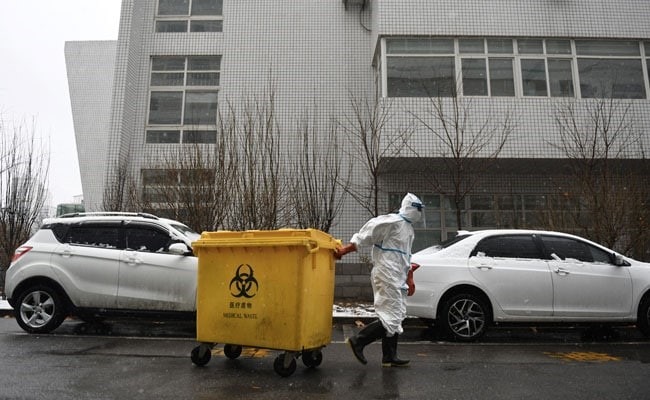| Translate This News In |
|---|
Every day, hazmat-suited personnel in China push plastic swabs down millions of people’s throats, resulting in bins bursting at the seams with medical waste that has become the environmental and economic cost of a zero-Covid approach.
China is the last large economy dedicated to eradicating infections at all costs.
When only a few cases are found, the most typical weapon in an anti-virus armoury is near-daily testing, which also includes snap lockdowns and forced quarantines.
Cities from Beijing to Shanghai, Shenzhen to Tianjin now have an archipelago of temporary testing kiosks, and officials have ordered hundreds of millions of individuals to be swabbed every two or three days.
Mass testing appears to be here to stay, with Chinese authorities claiming that zero-Covid had saved the world’s most populous country from a public health disaster.
Experts, however, believe the strategy, which provides political legitimacy to the ruling Communist Party, creates a sea of dangerous garbage and an increasing fiscal burden for local governments, which must invest tens of billions of dollars in the system’s upkeep.
Yifei Li, an environmental studies expert at New York University Shanghai, said, “The sheer amount of medical waste that is being generated on a regular basis (is) at a magnitude that is nearly unknown in human history.”
“The problems have already reached stratospheric proportions, and they will continue to do so,” he told AFP.
Beijing has positioned itself as an environmental leader, cracking down on air and water pollution while establishing a goal of being carbon-neutral by 2060, a goal that experts believe is unrealistic given the present trajectory of coal investments.
Blanket-testing has created a new garbage problem.
Each positive case, which occurs on a daily basis in the United States, leaves a trail of used test kits, face masks, and personal protective equipment in its wake.
Biomedical waste can pollute soil and waterways if it is not properly disposed of, creating environmental and human health risks.
Questions that need to be addressed
According to an AFP review of government notices and Chinese media sources, cities and provinces with a combined population of roughly 600 million people have recently announced some type of routine testing.
Various limits have been applied by different regions, and some places have stopped the policy due to a decrease in the number of instances.
Data on the trash footprint across the country has not been released. However, officials in Shanghai claimed last month that during the recent Covid lockdown, the city produced 68,500 tonnes of medical waste, with daily output up to six times greater than typical.
Local governments in China are responsible for separating, cleaning, transporting, and storing Covid waste until finally disposing of it, which is usually through incineration.
However, in the poorer rural areas of the country, waste disposal facilities have long been overcrowded.
“I’m not convinced the countryside has the capacity to deal with a large increase in the volume of medical waste,” said Yanzhong Huang, a senior fellow at the Council on Foreign Relations who specialises in global health.
According to Benjamin Steuer of the Hong Kong University of Science and Technology, the increase in waste may cause some local governments to treat it incorrectly or simply “dump it on the ground” in temporary landfills.
China’s health ministry claimed in a statement to AFP that as part of national Covid guidelines, it issued “particular criteria for medical waste disposal.”
A waste of money?
Beijing has urged provincial capitals and cities with populations of at least 10 million to establish a test site within 15 minutes of each citizen.
Top leaders also anticipate that local governments would foot the tab for testing at a time when many are trying to balance their budgets.
According to Nomura analysts, extending the approach to the entire country may cost between 0.9 and 2.3 percent of China’s GDP.
“It’s a tough economics,” said Li of NYU Shanghai. “You don’t want to invest in long-term infrastructure to handle what is thought to be a short-term rise of medical waste.”
According to Jin Dong-yan, a professor at Hong Kong University’s School of Biomedical Sciences, “extremely ineffective and costly” frequent testing will drive governments to abandon other critical healthcare initiatives.
Authorities are also likely to miss positive cases because the Omicron variation spreads quickly and is more difficult to detect than other strains, he told AFP.
“This will not work,” he said. “It will simply wash millions of dollars into the sea.”


















